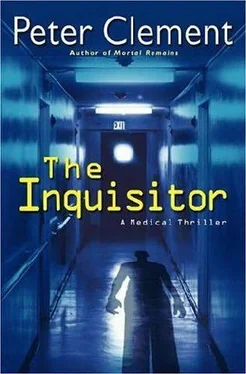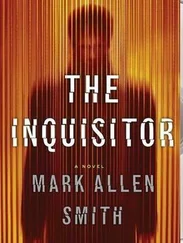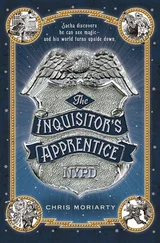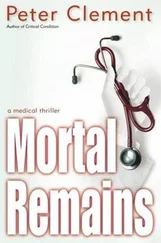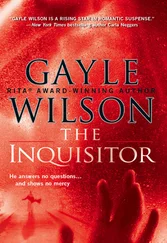Or her mother. She'd been ecstatically proud to have a daughter who would be the first woman in the family to have a profession, as opposed to her own lifetime of waiting on tables at the local Denny's, double shifts galore after Dad died.
Now this.
And how would Arliss, her little brother, take it? They'd planned to escape Grand Forks together. First she'd get out through nursing, then he'd follow, and she'd help with the money for his college tuition. He'd been crazy about animals since they got their first puppy, and he dreamed of becoming a vet. If she stopped work, his future crashed as well.
And most of all, what would Thomas think?
Or would she tell anyone? She could just get rid of it privately, with no one she cared about the wiser.
She stared at the indicator dot.
It turned blue as a newborn's eyes.
Later that same evening, 5:45 p.m. CEO's office, St. Paul's Hospital
Dr. Paul Hurst threw down the article Earl had shown him. "But they're supposed to die. It's a terminal ward."
"I still thought you should know."
"On the basis of… what did you say? A fall in average length of stay from twenty-seven days to twenty-four about three months ago, and a point-five increase in the number of deaths reported each morning? That's infinitesimal."
"Not exactly. It's a rise of fourteen deaths a month, all of them occurring at night. And three months before that there had been a similar change, an increase of about eleven deaths a month, again mainly at night. In the previous years, the rate appeared to hold steady, about three-point-three deaths a day, and only half of them on that shift."
Hurst rolled his eyes at the ceiling. "Will you listen to yourself? You sound like my stockbroker pitching nonexistent returns. Besides, it could be that patients are admitted at a later stage of the disease these days and therefore die sooner once they're here. Hell, it sounds like something you should applaud, a reduced length of stay and more efficient use of beds. You spearheaded that trend everywhere else in the hospital to keep ER from getting overcrowded. Why not in palliative care?"
Most doctors were comfortable with inevitable death, considering it as natural as life, but Earl had never heard one of his profession suggest it be celebrated as part of efficient bed use. The majority were aware enough of their own mortality not to be so callous. However, there were exceptions.
Paul Hurst, originally a general surgeon, had had his first heart attack in his mid-forties and had looked ashen ever since. That had been twenty years ago. At the time he stopped practicing medicine and assumed the post of VP, medical, having made the dubious calculation that hospital politics would be less stressful than the OR.
It hadn't worked out that way.
Earl had become his enemy a decade ago by exposing an accounting scandal Hurst had attempted to cover up. In the aftermath Hurst had tried to get Earl fired more than once, and failed.
But during the last few years, once Hurst had succeeded in getting what he'd been after all along, to be CEO of St. Paul's, a watchful state of quiet had existed between the two men. Not a truce exactly, but more an admission that Earl Garnet gave as good as he got- that had been the consensus of those who followed hospital power games the same way they did baseball.
Their pronouncement had given Earl no small amount of satisfaction.
"Sure, it could be later admissions," he conceded, picking up the New England Journal article and shoving it back at Hurst. "I just want to make sure we haven't got our own angel of death up there taking it on herself to ease their suffering."
The report had made national headlines in the mid-eighties. It appeared after a case in New York City where police charged a nurse with poisoning children on a pediatric ward with intravenous digoxin, yet a court of law found her innocent. A group of epidemiologists subsequently looked at several hospitals with clusters of unexplained cardiopulmonary arrests; their goal was to provide a tool that would prevent such wrongful accusations in the future or, in the case of actual foul play, more accurately pinpoint the culprit. For each of the institutions they examined, they plotted all such mysterious occurrences against the work schedule of the nurses who'd had access to the patients; in several instances they found a particular nurse who had been on duty when most of the deaths occurred. The results led to the successful prosecution of four serial killers, one of whom had been active in two states. Ever since, any unexplained rise in a hospital's mortality rate had administrators nervously eyeing their nursing rosters.
Hurst grabbed the article from him and tapped the opening paragraph with his gloved hand. Even enclosed in latex, his surgeon's fingers matched the rest of him- long and thin. "I suggest you take another look at the criteria for what you're insinuating." He peered over the top of stylishly small eyeglasses with wire frames and read, " 'Suspicions should be raised only when clusters of deaths and cardiopulmonary arrests occur that are either unexpected in timing or inconsistent with a patient's previous clinical course.'" He broke off and again threw the paper back on his massive mahogany desk. "You haven't shown any of that."
"I intend to check further."
"Oh, Jesus!" He reached up as if to rub his eyes, then, as if the sight of the gloves made him think otherwise, made a pyramid with his fingers in front of his mask.
Earl had watched this gesture at hundreds of meetings over the years, albeit without the protective gear. It usually preceded Hurst making a calculated move to undercut anyone who dared oppose him. He braced for what his longtime opponent would say next. As he waited, the incongruity of two men completely garbed in OR wear amid the luxurious setting of a wood-paneled room, inch-thick broadloom, and floral-covered antique chairs that any museum would die for made the moment surreal.
"You know, Earl," Hurst began, his voice uncharacteristically weary, "despite our former differences, I welcomed your appointment as VP, medical, even spoke on your behalf to the board."
A chill ran through Earl. When Hurst started to butter someone up, look out. "Yeah, right," he said with a sarcastic laugh, to serve notice he wouldn't be fooled.
"No, I'm serious. You care about this old place as much as I do. We just sometimes differ on what's best for it."
Really? That would be because you're a control freak who cares a little too much about St. Paul's and much too little about patients, Earl quipped to himself, keeping his mouth shut.
"And I couldn't think of a tougher team than you and me to get St. Paul's through this SARS mess. So what do you say we bury the hatchet and fight the real enemy together?" He stood, reached across the cluttered broad expanse of the desk, and held out his hand.
Earl hadn't expected the gesture. He looked at the waiting palm as if regarding a venomous snake.
"Come on, Earl. It's the right thing to do, and you know it. You're the most brilliant, hardheaded son of a bitch I ever went up against. There's no telling what we could accomplish by working together."
Earl made the shake, though tentatively.
"Now, about this business in Palliative Care. Let me ask you something: would you be so ready to investigate the place if you weren't the doctor involved in the Matthews case?"
Earl immediately went back on the defensive, feeling suckered. "Now wait a minute, this isn't about me trying to save my ass."
"Just give me an honest answer. That's all I ask. Would you press ahead, or wait and see what happens at death rounds?"
Earl hesitated, taken by the earnestness in Hurst's voice, yet not sure that the man wouldn't try to snooker him.
Читать дальше
